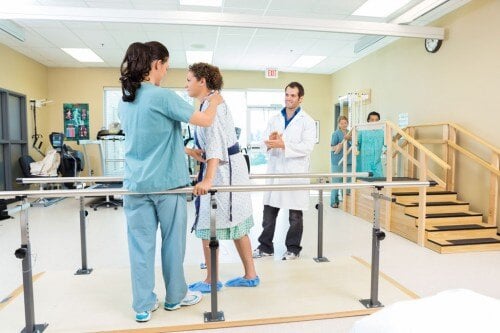
Introduction to Allied Health Professionals
Healthcare is more than doctors and nurses. It's a whole team effort, where allied health professionals play a crucial role. These are the experts who work alongside doctors, focusing on preventing, diagnosing, and treating various health conditions. Their goal? To make sure you get comprehensive care. Who are they? Think physical therapists helping you recover from an injury, dietitians advising on the right nutrition, and speech therapists assisting in overcoming communication hurdles. There are many more, each with a unique role in keeping us healthy. Their work is all about supporting you - from recovery to living your best life. Allied health professionals are game-changers in the healthcare field, pushing towards a more holistic approach to health and wellness.
Who Are Allied Health Professionals?
Allied health professionals are the secret warriors of healthcare. They're not doctors or nurses, but they're vital to patient care. Think physical therapists, occupational therapists, speech pathologists, and many more. These experts focus on preventing, diagnosing, and treating a range of conditions and illnesses. They work across various settings - hospitals, clinics, schools, and communities. Their goal? To improve your well-being, help you recover, and ensure you can live your life to the fullest. In short, allied health professionals are the backbone of healthcare, supporting you every step of the way.
The Growing Role of Allied Health in Modern Healthcare
Allied health professionals are now the backbone of modern healthcare. Think of them as the unsung heroes who work tirelessly alongside doctors and nurses. They include physical therapists, occupational therapists, speech therapists, and many others who specialize in different areas of healthcare. Their role? It's all about improving patient outcomes and making healthcare more accessible and affordable. Now, more than ever, these pros are stepping into the spotlight. Why? Because the healthcare industry is evolving. There’s a growing demand for specialized care that can only be met by those trained in these critical, yet specific, areas. Whether it's helping patients recover faster, managing chronic illnesses more effectively, or providing essential preventive care, allied health professionals are making it happen. This shift towards specialized care is not just a trend; it's a necessary evolution in how we approach health and wellness. So next time you visit a healthcare facility, remember the crucial role these experts play in shaping a healthier future.
Key Specializations Within Allied Health
Allied health professionals come from various fields, each bringing unique skills to the healthcare table. Here are some key specializations: Physical Therapists help patients regain mobility after injuries or surgeries, focusing on physical rehab. Speech-Language Pathologists target communication disorders, helping people improve speaking and listening skills. Radiologic Technologists play a pivotal role in diagnosing conditions, using imaging techniques like X-rays. Occupational Therapists assist individuals in performing daily activities, especially after life-changing health issues, aiming to enhance their quality of life. These specialists, among others in their field, are crucial in offering comprehensive care that goes beyond basic medical treatment.
How Allied Health Professionals Contribute to Patient Care
Allied health professionals are champions in the healthcare field, significantly impacting patient care. These skilled individuals include physical therapists, nurses, dental hygienists, diagnostic medical personnel, and more. They fill the gaps in healthcare, ensuring that patients receive comprehensive treatments. For starters, they provide specialized care that supports doctors' work. Whether it's a physical therapist helping a patient regain mobility or a dental hygienist ensuring optimal oral health, their expertise is crucial. They also play a huge role in preventative care and rehabilitation, helping to prevent illness and aid in recovery, reducing hospital stays, and improving patient outcomes. Additionally, they are involved in patient education, empowering individuals to take charge of their health through informed choices. Through their diverse skills and patient-centered approach, allied health professionals are essential in the effective delivery of healthcare services, making the healthcare system more efficient and accessible.
The Impact of Allied Health on Healthcare Costs and Efficiency
Allied health professionals, like physical therapists, radiographers, and dietitians, are not just support acts in the healthcare scene; they're leading players in slashing healthcare costs and boosting efficiency. By focusing on prevention and rehabilitation, these pros help reduce the need for expensive treatments and lengthy hospital stays. It's not just about healing; it's about smart, cost-effective healthcare. For instance, early intervention by a dietitian can manage conditions like diabetes, cutting down on costly medications and complications down the line. Physical therapists help patients recover quicker, shrinking the bill for long-term care. This teamwork approach streamlines care, making the healthcare system more efficient. In essence, allied health professionals are the unsung heroes who keep healthcare costs from skyrocketing while ensuring patient care doesn't drop the ball.
Challenges Faced by Allied Health Professionals
Allied health professionals face several hurdles that can impact their ability to provide top-notch care. One major challenge is staying up-to-date with the latest healthcare technologies and treatments. This field moves fast, and what was cutting-edge last year might be outdated today. Another big obstacle is dealing with understaffing. Many healthcare facilities don’t have enough hands on deck, putting extra pressure on allied health professionals to cover more ground than they might be comfortable with. Burnout is a real issue in this space, as the high-stress environment and emotional demands of the job can take a toll. Then there's the matter of gaining respect and recognition. Despite playing critical roles in patient care, allied health workers sometimes don’t get the acknowledgment they deserve, especially compared to their colleagues in more traditional healthcare roles. Finally, navigating the complex web of healthcare regulations and paperwork can be exhausting and time-consuming, distracting from patient care. These challenges aren’t small, but understanding them is the first step in overcoming them and continuing to revolutionize healthcare.
The Future of Healthcare: A Closer Look at Allied Health's Role
The future of healthcare is shining brighter thanks to allied health professionals. These are the experts who support doctors and nurses, making sure patients receive the best care possible. We're talking about physical therapists, lab techs, radiographers, and many others who play a huge part in healing and health maintenance. Their role is getting bigger and more essential every day. With healthcare technology advancing fast, allied health professionals are the ones mastering these new tools and therapies, bringing innovative treatments to the bedside sooner. They're also stepping into roles that were once reserved for doctors, like diagnosing conditions and prescribing medication in some cases. This shift means healthcare can reach more people, more efficiently, making our health system stronger and more responsive. In short, allied health professionals are not just part of the healthcare team; they're becoming leaders in transforming how healthcare is delivered, making it more accessible, effective, and personalized. Their growth and evolution are keys to addressing today's health challenges and preparing for tomorrow's.
Opportunities for Growth and Development in Allied Health Careers
Allied health careers offer a broad spectrum of opportunities for personal and professional growth. Whether you're just starting out or looking to shift gears in your healthcare journey, the possibilities are vast. Fields like physical therapy, radiology, and occupational therapy are in constant demand, paving the way for continuous learning and advancement. With the healthcare industry evolving, professionals within these roles have the chance to stay at the forefront of medical technology and practices. Beyond just job security, pursuing a career in allied health means you're stepping into a role that promotes lifelong learning. Through certifications, workshops, and further education, there's always room to grow your skill set. This adaptability not only enhances your resume but also enriches your ability to provide the best care for patients. In short, choosing a career path in allied health doesn't just offer a job, it offers a dynamic career filled with opportunities to learn, advance, and truly make a difference in the healthcare world.
Conclusion: The Transformative Power of Allied Health Professionals in Healthcare
Allied health professionals are changing healthcare, and it's worth paying attention. From physical therapists to radiographers, these skilled individuals are not just supporting roles; they are at the heart of innovative patient care. Their role is crucial in preventing, diagnosing, and treating a wide range of conditions, making healthcare more accessible and improving patient outcomes. The shift towards team-based care highlights their importance even further, ensuring that patients receive the most comprehensive care possible. As healthcare evolves, the work of allied health professionals becomes more integral, showcasing the undeniable transformative power they hold within the healthcare landscape. Their dedication and expertise not only enhance patient care but also contribute significantly to the efficiency and effectiveness of healthcare systems globally. By embracing and integrating allied health professionals, healthcare is set to become more holistic, patient-centered, and effective than ever before. speech language pathologists allied health education programs
